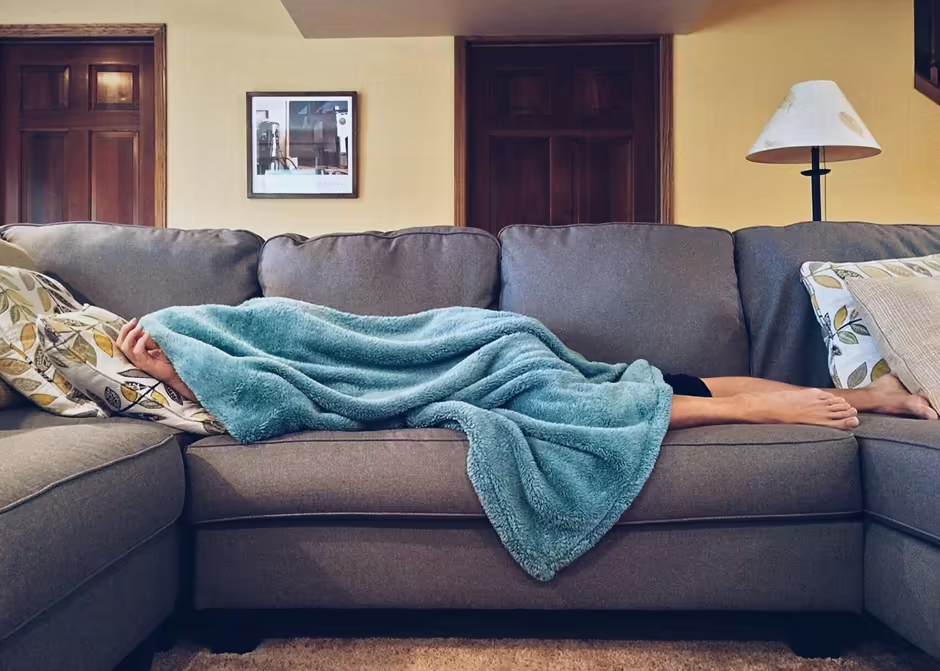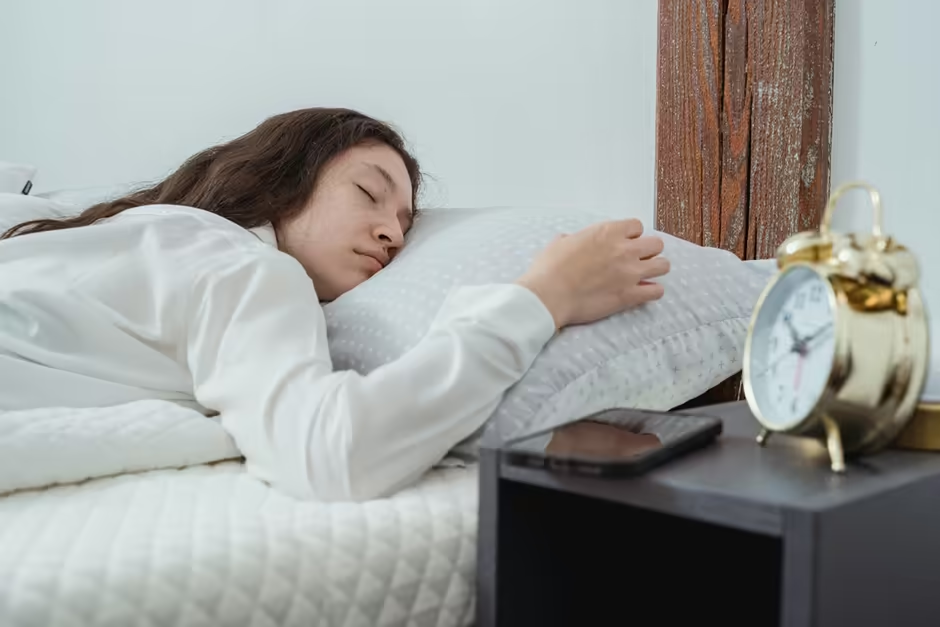Top 3 Secrets to Sound Sleep: Conquering Sleep Deprivation and Disturbances for Good!
Stressing the importance of sound sleep is vital in understanding the profound impact it has on overall health and well-being. One should not consider sound sleep to be a luxury. Rather, it is a biological need of human beings for optimal functioning and growth of the body. From physical recharging to emotional stability and healthy cognitive abilities, all aspects of our lives are connected with a night of sound sleep.
At a physiological level, sleep can be described as a time for our bodies to undergo essential processes for growth, repair, and regeneration. This phenomenon includes the repair of tissues and muscles, protein synthesis, and rejuvenation of the immunity system.
At a psychological level, a night of sound sleep is primarily linked to improved cognitive abilities and mental well-being. Ample sleep helps in maintaining ideal cognitive performance, especially memory consolidation; the formation of new neural pathways for learning; and decision-making abilities. Regulation of emotions and healthy mental health are also linked with the ability to experience sound sleep.

However, in the fast-paced life of today’s demanding world, many people are unable to prioritize a sound sleep. Sleep deprivation and disturbances have emerged as eminent challenges that can largely impact people’s health and well-being. Insufficient amount of quality and sound sleep can compromise the physiological and psychological needs of human bodies. This may lead to weakened immune functions, slower healing, increased vulnerability to chronic illnesses (diabetes and heart diseases), impaired cognitive abilities, and diminishing emotional and hormonal balances and irritation.
Implementing strategies to improve sleep quality and practicing daily to prioritize sleeping schedules, can overcome these challenges and transform the benefits of sound sleep. We unveil 3 key secrets to conquering sleep deprivation and disturbances for the good.
- Consistent Sleep Patterns – Sleep-Wake Cycle and Bedtime Routine
- Optimizing Sleep Environment – Minimizing Disturbances
- Lifestyle Adjustments – Exercise, Sunlight, and Dietary intake
- Bonus Tips – Napping Wisely and Relaxing Bath
Establishing a Consistent Sleep Pattern
Having a consistent sleep pattern is fundamental for ensuring sound sleep, and reducing the risk of sleep deprivation. By adhering to a regular sleep-wake cycle, individuals can synchronize their body’s internal clock, mitigate the effects of sleep disturbances, and promote overall well-being.
Research shows that a consistent bedtime and wake-up time that allows for a sound 7 to 9 hours of sleep per night is essential for a healthy sleep routine. For creating this bedtime routine, start by assessing your sleep needs. While general guideline suggests 7-9 hours of sleep, some individuals may require slightly more or less sleep for a fully rested and fresh body.

Once the ideal sleep duration is determined, count backward from the desired time for waking up. Choose a bedtime that aligns with your calculated sleep duration and stick to this bedtime routine every night, including weekends. Keep in mind that your body may not directly sleep this new bedtime routine and it should require some time for forming the habit. This period, also known as onset latency, can vary from 10 to 20 minutes per day from person to person. But if you are unable to sleep for days based on the new bedtime routine, try to adjust it slightly earlier or later so that it may align with your body’s natural sleep patterns
To ensure you have a sound sleep, pay attention to how you feel upon waking up in the morning. If you consistently feel fresh and energetic, your bedtime routine is appropriate for your individual needs. But if you constantly feel groggy and fatigued, this may be a sign of sleep deprivation or disturbances and need reassessing of the bedtime routine altogether
Not maintaining a consistent sleep pattern, especially on weekends can have several negative impacts on your mental and physical health. Your body’s internal clock, known as circadian rhythm, relies on consistency for optimal functioning. Inconsistency can lead to difficulty falling asleep and waking up at desired times, contributing to sleep deprivation. Moreover, irregular sleep patterns can exacerbate existing sleep disturbances like insomnia and sleep apnea, making it challenging to achieve sound sleep.

Creating Your Ideal Sleep Environment
Crafting a peaceful environment is crucial for fostering sound sleep free from disturbances. Each aspect of your room plays a vital role in promoting restful and uninterrupted sleep. By optimizing the bedroom environment to minimize disturbances and creating a relaxing ambiance through the strategic use of light and noise-free measures, the best sleeping experience can be created.
To optimize your room to ensure sound sleep, start by choosing a mattress and pillows that can provide you with full support. Factor in the fitness, material, and ergonomic designs for perfect spinal alignment and ideal comfort throughout the night. Bedding made of natural and breathable fabrics like cotton can regulate body temperature. Investing in blackouts to create a dark sleep environment can signal your brain to hit melatonin production for a restful night. Similarly, ensuring adequate airflow by opening windows or fans and using a thermostat or air conditioner to regulate room temperature can help in providing sound sleep.
Engaging in calming activities can signal to your body that it is time to wind down. This can include reading books, practicing meditation, and playing soft music. You can also consider using essential oils with relaxing properties to create a mental atmosphere of tranquility and peace in your room. Diffusing oils like lavender or chamomile are shown to enhance sleep quality and reduce sleep disturbances.

Focusing on disturbances is important to reduce sleep deprivation. Dimming the lighting levels can also be a beneficial step for creating a relaxing environment. Additionally, keep away from smartphone devices or at least keep them on “DO NOT DISTURB” mode so that the blue light emitted from them cannot interfere with melatonin production. Devices like white noise machines can help drown disruptive sounds as such traffic or a noisy neighborhood, providing the basis for sound sleep.
Check for gaps and cracks in windows and doors that may allow outside noise into the bedroom. Using weather stripping or caulk to seal these gaps can create a better soundproof barrier against unwanted disturbances. If you are unable to control the flow of external light sources, the best idea can be the use of a sleep mask. Sleep masks can block out lights and create darkness promoting sound sleep. These masks are especially helpful for individuals who live in shared spaces and are sensitive to light or are suffering from irregular sleep schedules.

Lifestyle Adjustments for Sound Sleep
From prioritizing exercise to managing to regulate natural light exposure and managing caffeine intake, every aspect of our daily routine can impact sleep patterns. Let us explore some lifestyle adjustments that can contribute to achieving sound sleep and minimizing sleep disturbances.
Regular physical activity has been consistently linked to improved sleep quality and duration, making it one of the most valuable strategies for addressing sleep disturbances and achieving sound sleep. Exercising daily at a consistent time helps synchronize the circadian rhythm, promoting more regular sleep patterns and a greater sense of wakefulness during the day.
Engaging in physical activity triggers the release of endorphins. These hormones are commonly referred to as the “feel-good hormones” because of the promotion of relaxation and well-being that help to alleviate stress and tension. Hence, individuals who exercise tend to experience deeper relaxation and desirable stress in the muscles, making it easier to fall asleep on a deeper level.

Exposure to natural light, particularly in the morning, helps synchronize the circadian rhythm that signals to the body that it is time to be awake and alert. This natural daylight exposure suppresses the production of melatonin, the hormones that induce sleepiness, promoting wakefulness and alertness during the day. Individuals who receive ample sunlight exposure during the day often report experiencing fewer sleep disturbances and waking up feeling refreshed and rejuvenated after a sound sleep.
Sunlight exposure has mood-regulating effects and can help alleviate symptoms of depression and anxiety, which are often associated with sleep disturbances. This can also be understood by the phenomenon of seasonal depression that some people face during winters when sunlight is for a shorter period and does not appear on rainy days.
Caffeine is a stimulant that can interfere with sleep by blocking the action of adenosine which promotes relaxation and drowsiness. By cutting caffeine consumption, especially in the afternoon and evening, people can reduce the risk of sleep disturbances like difficulty falling asleep, frequent awakenings, and disrupted sleep cycles. Individuals can reduce sleep-onset latency and facilitate quicker and more efficient sleep initiation simply by cutting off excessive caffeine consumption.
Caffeine has been shown to negatively impact sleep architecture, especially the disruption of normal progression from lighter stages of sleep to deeper, more restorative stages of sleep. Reducing caffeine intake can promote the attainment of deeper and more relaxed stages of sleep which is essential for having sound sleep. However, cutting caffeine intake may not immediately show positive results. Rather, in the beginning, caffeine withdrawal may cause temporary symptoms like headaches, irritability, and fatigue. These symptoms typically subside in a few days as the body adjusts to lower levels of caffeine.

Eating heavy or large meals too close to bedtime can lead to discomfort and digestive issues that may interfere with sleep. By timing meals earlier in the evening and allowing sufficient time for digestion before bedtime individuals can minimize discomfort. This will also help in the promotion of a more peaceful transition into sleep, reducing the likelihood of sleep disturbances.
Acid reflux is a common cause of sleep disturbances and can significantly impact sleep quality. If individuals avoid heavy and acidic meals before bedtime, this can ensure sound sleep with no disturbances. Similarly, eating meals at consistent times throughout the day helps our body regulate the blood sugar level and prevent fluctuations that can cause sleep disturbances.
Bonus Tips for a Sound Sleep
While napping can be beneficial for boosting alertness and mood, especially during a busy work day. To nap wisely, aim for shorter than 20 to 30-minute naps earlier in the day to avoid interfering with nighttime sleep. Short naps can provide a quick energy boost and enhance cognitive function without altering the bedtime routine and deep stages of sleep.
Excessive and irregular napping can disrupt nighttime sleep patterns leading to sleep disturbances that can result in a cycle of sleep deprivation. Excessive napping can mask underlying sleep deficiencies, leading to the accumulation of sleep debt over time. Since naps may provide temporary relief from daytime fatigue, it does not address the root cause of sleep deprivation and perpetuate a cycle of inadequate sleep and daytime sleepiness.

Incorporating a warm bath or shower into your bedtime routine offers a multitude of benefits for promoting relaxation and preparing your body and mind for sound sleep. As you soak in the soothing warmth, your core body temperature gradually decreases. This mimics the natural drop in temperature that occurs during the onset of sleep. This decline in core body temperature is essential for initiating sleep and facilitating the transition into deeper and more restful stages of sound sleep.
Conclusion
Achieving sound sleep is essential for overall health and well-being, yet many individuals struggle with sleep deprivation and disturbances in today’s fast-paced world. By understanding the profound impact of sound sleep on physiological and psychological functions, we can prioritize sleep health and implement strategies to overcome common challenges.
Summarizing the top three keys to sound sleep outlined in this guide, consistency in sleep patterns, crafting a peaceful environment, and adopting lifestyle adjustments are paramount.
Establishing a consistent sleep-wake cycle synchronizes the body’s internal clock, reduces the risk of sleep disturbances, and promotes overall well-being.
Crafting a peaceful environment involves optimizing the bedroom environment, minimizing disturbances, and reducing noise and light disruptions to foster restful and uninterrupted sleep.
Lifestyle adjustments such as prioritizing exercise, managing natural sunlight exposure, and cutting caffeine intake play crucial roles in promoting sound sleep and reducing chances of sleep deprivation. Regular physical activity synchronizes the circadian rhythm, while exposure to natural light regulates wakefulness and alertness during the day. Cutting caffeine consumption, especially in the afternoon and evening reduces the risk of sleep disturbances and facilitates quicker and more efficient sleep initiation.
To learn more about personal development, click here.


